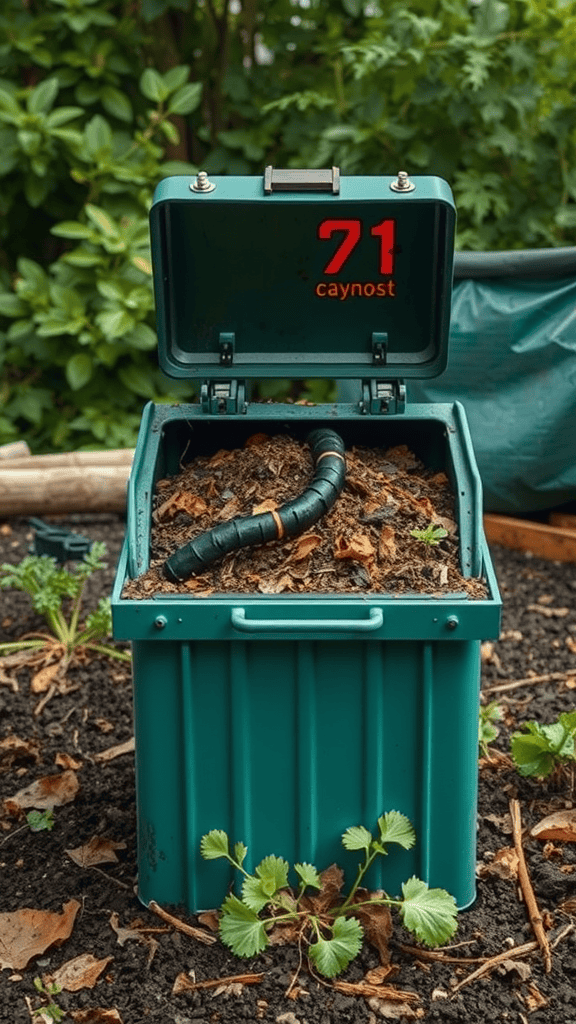Understanding the Functionality of a Commercial Compost Machine: How It Works
When it comes to sustainable waste management, a commercial compost machine plays a vital role. Designed for high efficiency, these machines convert organic waste into nutrient-rich compost on a larger scale. For businesses, municipalities, and any organization needing to process large volumes of food scraps and yard waste, understanding how a commercial compost machine works can make a significant difference in operational efficiency and environmental impact.
Commercial compost machines use a combination of biological and mechanical processes to break down organic materials. Here’s how they operate:
Key Components of a Commercial Compost Machine
- Feed Input: This is where all the organic waste, like food scraps, yard trimmings, and other biodegradable materials, are loaded into the machine.
- Mixing Mechanism: Inside the machine, the mixing mechanism ensures that the organic waste is evenly distributed. Proper mixing is essential for good aeration and heat distribution.
- Heating System: As decomposition occurs, the composting materials generate heat. A commercial compost machine usually has an integrated heating system that maintains optimum temperatures to speed up the process.
- Aeration System: Oxygen is crucial in the composting process. Airflow is regulated either mechanically or through the structure of the machine, ensuring that aerobic bacteria thrive and effectively break down the waste.
- Output Chamber: Once the composting process is complete, the finished product is moved to the output chamber, where it can be harvested for use.
How the Composting Process Works
Understanding the sequence of steps in a commercial compost machine helps clarify its efficiency:
- Collection: Organic materials are collected and fed into the machine.
- Shredding: The machine often includes a shredding function that breaks down larger pieces into smaller bits. This helps increase the surface area for microbes to do their work.
- Monitoring Conditions: Temperature and moisture levels are monitored continuously. This data is crucial, as the right conditions foster effective composting.
- Active Decomposition: Microorganisms break down the organic matter. In active composting, the temperatures can reach up to 160°F (71°C), which helps kill pathogens and weed seeds.
- Turning or Mixing: Periodical turning or mixing is performed to introduce oxygen and redistribute materials. This ensures all parts of the compost receive equal treatment.
- Cooling: As decomposition slows, the compost cools down and is transformed into dark, crumbly soil.
- Harvesting: the compost is harvested from the machine and can be used to enrich soil in gardens, farms, and landscaping.
Benefits of Using a Commercial Compost Machine
Investing in a commercial compost machine offers several compelling advantages:
- Sustainability: Reduces landfill waste by diverting organic materials and contributes to a circular economy.
- Cost-Effective: Through composting, businesses can save on waste disposal costs and produce their own soil amendment, reducing purchasing expenses.
- Quality Control: The controlled environment in a commercial machine allows for the production of high-quality compost, free from contaminants.
- Time Efficiency: Faster composting speeds compared to traditional methods mean you can produce compost in weeks instead of months.
Choosing the Right Commercial Compost Machine
When selecting a commercial compost machine, consider these factors:
- Capacity: Choose a machine that meets your volume needs, whether it’s for a small café or a large institution.
- Features: Look for machines with advanced features like automated monitoring and adjustable aeration for enhanced performance.
- Space Requirements: Ensure you have adequate space to accommodate the machine and manage the output effectively.
A commercial compost machine is an efficient tool that transforms organic waste into valuable compost. Its design and mechanisms ensure that businesses can effectively and sustainably manage their organic waste, benefiting the environment while enhancing soil health. Understanding the functionality of these machines paves the way for more sustainable practices within your organization.
Benefits of Using a Commercial Compost Machine for Sustainable Waste Management
In today’s world, the need for effective waste management strategies is more crucial than ever. One of the top solutions for sustainable waste management is the use of a commercial compost machine. These machines streamline the composting process, converting organic waste into valuable compost, which can benefit the environment, businesses, and communities alike.
Transformative Waste Disposal
Commercial compost machines are designed to handle large quantities of organic waste efficiently. This capability transforms the way businesses dispose of their food scraps, yard waste, and other organic materials. Rather than sending this waste to landfills, where it contributes to greenhouse gas emissions, a compost machine facilitates an eco-friendly alternative. By converting waste to compost, businesses can significantly reduce their carbon footprint.
Time and Labor Efficiency
Using a commercial compost machine provides a faster and less labor-intensive method of composting. Unlike traditional composting, which can take months to yield usable compost, these machines can process waste in a matter of weeks or even days. They often come equipped with automatic features that handle mixing, aeration, and temperature control. This leaves staff with more time to focus on other essential tasks, enhancing overall productivity.
Cost Savings
While the initial investment in a commercial compost machine might seem significant, the long-term savings can be substantial. Here are some cost-saving benefits:
- Reduced Waste Disposal Fees: By composting, businesses can decrease the volume of waste sent to landfills, leading to lower tipping fees.
- Less Purchase of Fertilizer: The compost produced can replace chemical fertilizers, reducing overall spending on gardening and landscaping supplies.
- Improved Public Image: Consumers increasingly prefer brands that adopt sustainable practices. By showcasing eco-friendly initiatives, businesses can attract environmentally conscious customers.
Enhanced Soil Health
The compost generated by commercial machines is rich in nutrients and beneficial microorganisms. When applied to gardens, lawns, and agricultural operations, this compost improves soil health in several ways:
- Increased Nutrient Content: Compost provides essential nutrients that promote plant growth.
- Soil Structure Improvement: It enhances soil aeration and water retention, allowing plants to thrive.
- Reduction in Chemical Usage: Healthier soil often requires fewer chemical inputs, which benefits both the environment and the end consumer.
Support for Local Economy
Implementing commercial composting can also strengthen local economies. By using local resources for compost, businesses can support local farmers, landscapers, and gardeners. This reciprocal support fosters community ties and helps develop sustainable practices that can be adopted by other local entities.
Regulatory Compliance
Governments are increasingly setting stricter regulations regarding waste disposal and recycling. Businesses can stay ahead of these regulations by utilizing commercial compost machines. With these machines, companies can demonstrate compliance with local ordinances aimed at reducing waste and promoting sustainability. This proactive approach not only helps avoid penalties but often earns praise from both regulators and consumers.
Educational Opportunities
Commercial compost machines also offer unique opportunities for education and community engagement. Businesses can use their composting efforts to teach employees and customers about sustainability, waste reduction, and environmental responsibility. Workshops or tours can center around the composting process, helping demystify it and encouraging more individuals to adopt similar practices.
Final Thoughts
Embracing a commercial compost machine is not just about managing waste; it’s about creating a sustainable future. The benefits extend far beyond waste reduction, touching on cost savings, environmental impact, soil health, local economies, and community education. Investing in this technology positions businesses as leaders in sustainability, making a positive impact on both the environment and society. By choosing a commercial compost machine, you are not just composting; you are contributing to a greener planet.
Conclusion
A commercial compost machine plays a crucial role in promoting sustainable waste management by transforming organic waste into valuable compost. By understanding how these machines work, you can appreciate their efficiency in speeding up the decomposition process. These systems utilize a combination of heat, aeration, and moisture control to convert food scraps, yard waste, and other organic materials into nutrient-rich compost in a matter of weeks instead of months.
The benefits of using a commercial compost machine are numerous and impactful. For businesses, adopting such technology reduces landfill waste, which is essential for a greener planet. It minimizes disposal costs while simultaneously creating a useful end product that can enrich soil and support local agriculture. Additionally, these machines contribute to reducing the carbon footprint, making them an excellent choice for environmentally-conscious companies.
Furthermore, commercial composting can enhance a company’s reputation by demonstrating a commitment to sustainability. Patrons increasingly favor businesses that incorporate eco-friendly practices, and composting is a clear message of responsibility and innovation.
By investing in a commercial compost machine, you not only take significant steps in waste management but also contribute to a healthier environment. The transformation of organic waste into compost leads to stronger soils, healthier crops, and a vibrant ecosystem. Embracing this technology can turn your waste challenge into an opportunity for positive change, benefiting both your business and the community at large.
As an Amazon Associate, I earn from qualifying purchases.

